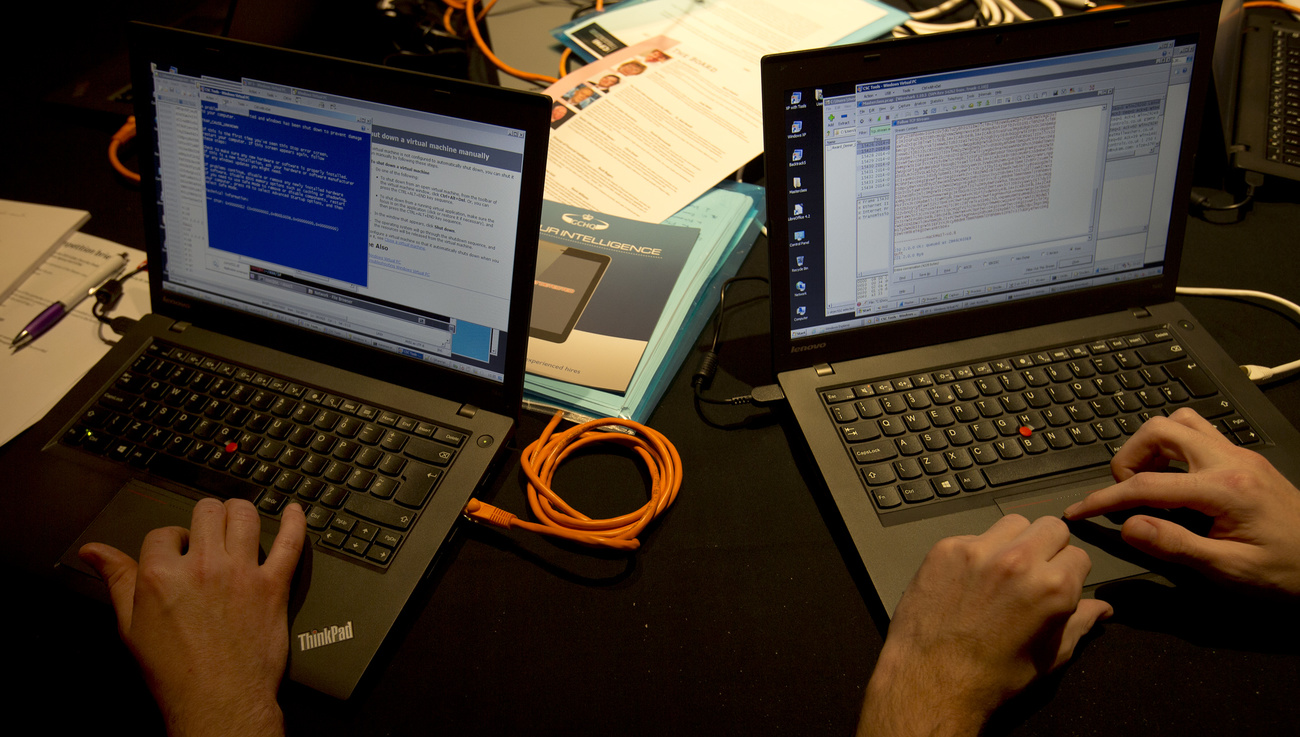
Almost half of large companies victims of cyberattacks

Internet criminals often target large companies. According to a study, 45% of Swiss companies with more than 250 employees have already been the victim of an attack at least once.
This is shown by the Swiss-VR-Monitor, a semi-annual survey published on Monday by the board of directors association swissVR in cooperation with the auditing and consulting firm Deloitte Switzerland and the Lucerne University of Applied Sciences and Arts. For the study, 400 board members were surveyed on cyber resilience.
In contrast to large companies, small and medium-sized companies (SMEs) appear to be significantly less affected: Only 18% of companies with fewer than 50 employees reported a serious attack.
+ Cyberattacks tops list of Swiss firms’ worries for 2022
As a reason for the correlation between company size and the frequency of attacks, Deloitte explained that large companies are more exposed globally and offer cybercriminals larger attack surfaces. “Another explanation for the supposedly lower level of concern among smaller companies is the partial lack of reporting of such incidents to the board of directors,” it said.
There is a need for action here, it said, pointing out that almost half of the companies lacked a clear cyber strategy. And 30% of the companies had not appointed a management team to adequately manage cyber issues. At least eight out of ten supervisory bodies have a risk policy that addresses cyber dangers.
+ Swiss government and Federal Railways hit by cyberattacks
Cyberattacks often have serious consequences for the operational business. By far the most frequent consequence is a business interruption. This is the case for 42% of the companies affected by a cyberattack. Data leaks occurred in a quarter of the companies attacked, and product malfunctions and faulty services in 20%.
In addition to lost sales due to business interruptions, there are high consequential costs, for example for the recovery of data. Only 7% of the attacked companies experienced an outflow of assets. But the financial consequences should not be underestimated, Deloitte wrote.
This news story has been written and carefully fact-checked by an external editorial team. At SWI swissinfo.ch we select the most relevant news for an international audience and use automatic translation tools such as DeepL to translate it into English. Providing you with automatically translated news gives us the time to write more in-depth articles. You can find them here.
If you want to know more about how we work, have a look here, and if you have feedback on this news story please write to english@swissinfo.ch.

In compliance with the JTI standards
More: SWI swissinfo.ch certified by the Journalism Trust Initiative

























You can find an overview of ongoing debates with our journalists here . Please join us!
If you want to start a conversation about a topic raised in this article or want to report factual errors, email us at english@swissinfo.ch.